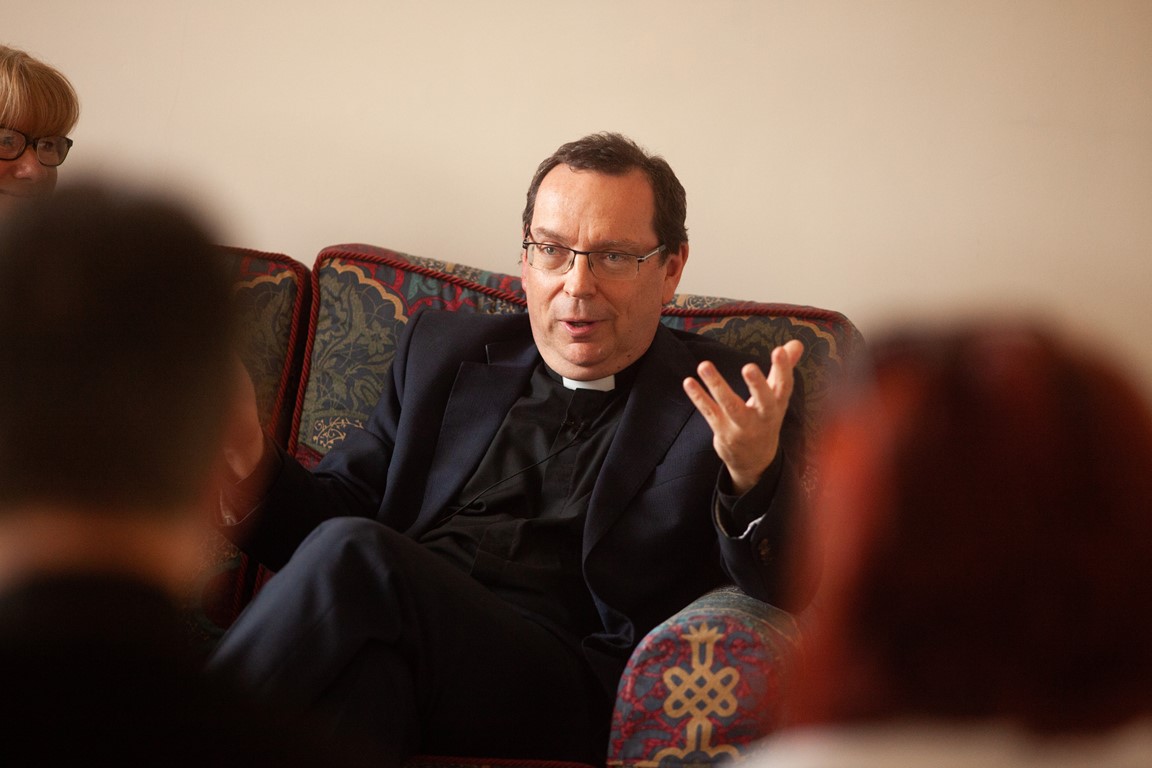An Interview with our bishop-elect

Philip Mounstephen soon takes up the reins as Bishop of Truro – but who is he? Dean Roger found out a bit more when they sat down for a cuppa and a chat …
RB: Welcome Philip – I know members of the cathedral community are looking forward to meeting you, but it is great to hear a bit more about you now. Perhaps you could start by telling us how your previous roles and experiences, especially in the Church Mission Society, have equipped you for being a bishop?
PM: I’m grateful to God for the sheer variety in the roles I’ve played – and the wonderful people I’ve met through them. I’ve been a parish priest, so I know what joys and challenges that can bring, and I’ve worked with churches across the traditions and in many contexts through training and consultancy. In
RB: Do you have any idea what your priorities in Cornwall will be?
PM: First to listen and learn: that’s essential. But I have a sense of four priorities I’d like to develop through that process of listening. Firstly, to celebrate children and young people at the heart of the life of the church; next, to be a church that encourages the ministry of innovators and pioneers; thirdly, to help all our churches develop a stronger sense of calling and purpose; and finally, to see us develop deeper and richer international links.
RB: What do you understand ‘living out the Christian life’ to be?
PM: I believe the diocese has no other purpose than to love and serve the people of Cornwall, the Isles of Scilly and our two parishes in Devon in word and deed in the name of Jesus Christ and in the power of his Spirit. So I believe that serving with love, like Jesus, is at the heart of living out the Christian life.
RB: What role do you see cathedrals playing in developing links with an increasingly secular society?
Every parish church belongs to the wider community as well as to the congregation, but cathedrals have a particular calling as a public space, an interface between the sacred and the secular. Ensuring that cathedrals are open to the wider community is an essential component of our service and mission.
RB: I understand you have family links to Cornwall. Do you know much about your family’s religious history here?
Many generations of my family lived in Tregony and were baptised, married and buried there, and in nearby parishes, before moving to Truro. I know a number of them were baptised in Truro Bible Christian Church in the 1830s. I imagine they must have been caught up in a revival movement. It certainly gives me great pleasure to know that I have both Anglican and Methodist Cornish roots.
RB: How do you like to relax?
PM: Few things give Ruth and me more pleasure than having good friends to dinner. I love travelling and discovering new places and people. Music is important to me: I have a collection of old
RB: As a supporter of Norwich City, I wonder whether you support a football club and when did you last see them?
Ah, I see you’re feeling the distance from Norfolk! I support Newcastle United, an experience characterised as ‘the triumph of hope over experience’. I saw them play Southampton away last year. A 2-2

